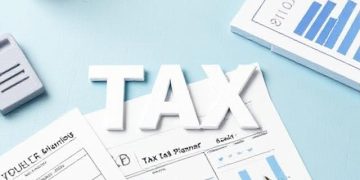In today’s fast-paced world, managing debt can be a daunting task for many individuals. With the ever-increasing cost of living, it’s no wonder that so many people find themselves struggling to keep up with their financial obligations. However, there are proven strategies that can help you take control of your debt and work towards financial freedom. In this article, we will explore these strategies in detail, providing you with the tools and knowledge you need to conquer your debt once and for all.
Understanding Debt
Before we delve into the strategies for mastering debt, it’s important to first understand what debt is and how it can impact your financial well-being. Debt is essentially money that you owe to someone else, whether it be a credit card company, a loan provider, or another financial institution. While some types of debt, such as mortgages or student loans, can be considered “good” debt because they can help you build wealth or improve your future earning potential, other types of debt, such as credit card debt, can be more harmful to your financial health.
When you accumulate debt, you are essentially borrowing money that you do not have in order to finance your lifestyle or cover unexpected expenses. While it may provide temporary relief, debt comes with a cost in the form of interest payments and fees, which can quickly add up and make it difficult to pay off your debts in a timely manner. This is why it’s crucial to have a clear understanding of your debt situation and take proactive steps to address it before it spirals out of control.
Creating a Debt Repayment Plan
The first step in mastering debt is to create a solid debt repayment plan that will help you prioritize your debts and allocate your resources in the most effective way possible. Start by listing all of your debts, including the amount owed, the interest rate, and the minimum monthly payment. This will give you a clear picture of your overall debt load and help you identify which debts you should focus on paying off first.
Next, consider using the debt snowball or debt avalanche method to prioritize your debts. With the debt snowball method, you pay off your debts in order from smallest to largest, regardless of interest rate. This can provide a sense of accomplishment and motivation as you pay off smaller debts quickly. On the other hand, the debt avalanche method involves paying off your debts in order from highest to lowest interest rate, which can help you save money on interest payments in the long run.
Whichever method you choose, it’s important to stick to your debt repayment plan and make consistent payments towards your debts each month. Consider setting up automatic payments or reminders to ensure that you stay on track and avoid missing any payments, which can result in late fees and damage your credit score.

Cutting Expenses and Increasing Income
In addition to creating a debt repayment plan, it’s important to look for ways to cut expenses and increase your income in order to free up more money for debt repayment. Start by reviewing your monthly expenses and identifying areas where you can cut back, such as dining out, entertainment, or subscription services. Consider creating a budget to track your spending and identify areas where you can make adjustments in order to save money.
You can also look for ways to increase your income, whether it be through taking on a part-time job, freelancing, or selling items you no longer need. By increasing your income, you can accelerate your debt repayment plan and work towards achieving financial freedom more quickly.
Seeking Professional Help
If you find yourself overwhelmed by debt and struggling to make progress on your own, don’t be afraid to seek professional help. Consider reaching out to a credit counselor or financial advisor who can provide you with personalized guidance and support in managing your debt. They can help you create a customized debt repayment plan, negotiate with creditors on your behalf, and provide you with valuable resources and tools to help you achieve your financial goals.
Additionally, if you are considering debt consolidation or debt settlement, it’s important to carefully research your options and consult with a professional before making any decisions. While these strategies can help you reduce your debt load, they can also have negative consequences on your credit score and financial well-being if not handled properly.

Maintaining Financial Discipline
Finally, in order to master debt and achieve financial freedom, it’s important to maintain financial discipline and stay committed to your goals. This means avoiding taking on new debt, using credit responsibly, and making smart financial decisions that align with your long-term goals. Consider setting financial goals for yourself, whether it be saving for a major purchase, building an emergency fund, or investing for the future, and use them as motivation to stay on track and avoid falling back into debt.
Remember that mastering debt is a journey that requires patience, perseverance, and dedication. By implementing the strategies outlined in this article, you can take control of your debt, improve your financial health, and work towards achieving the financial freedom you deserve. Don’t be afraid to seek help when needed, stay focused on your goals, and celebrate your successes along the way. With the right mindset and tools, you can conquer your debt and pave the way towards a brighter financial future.

















































